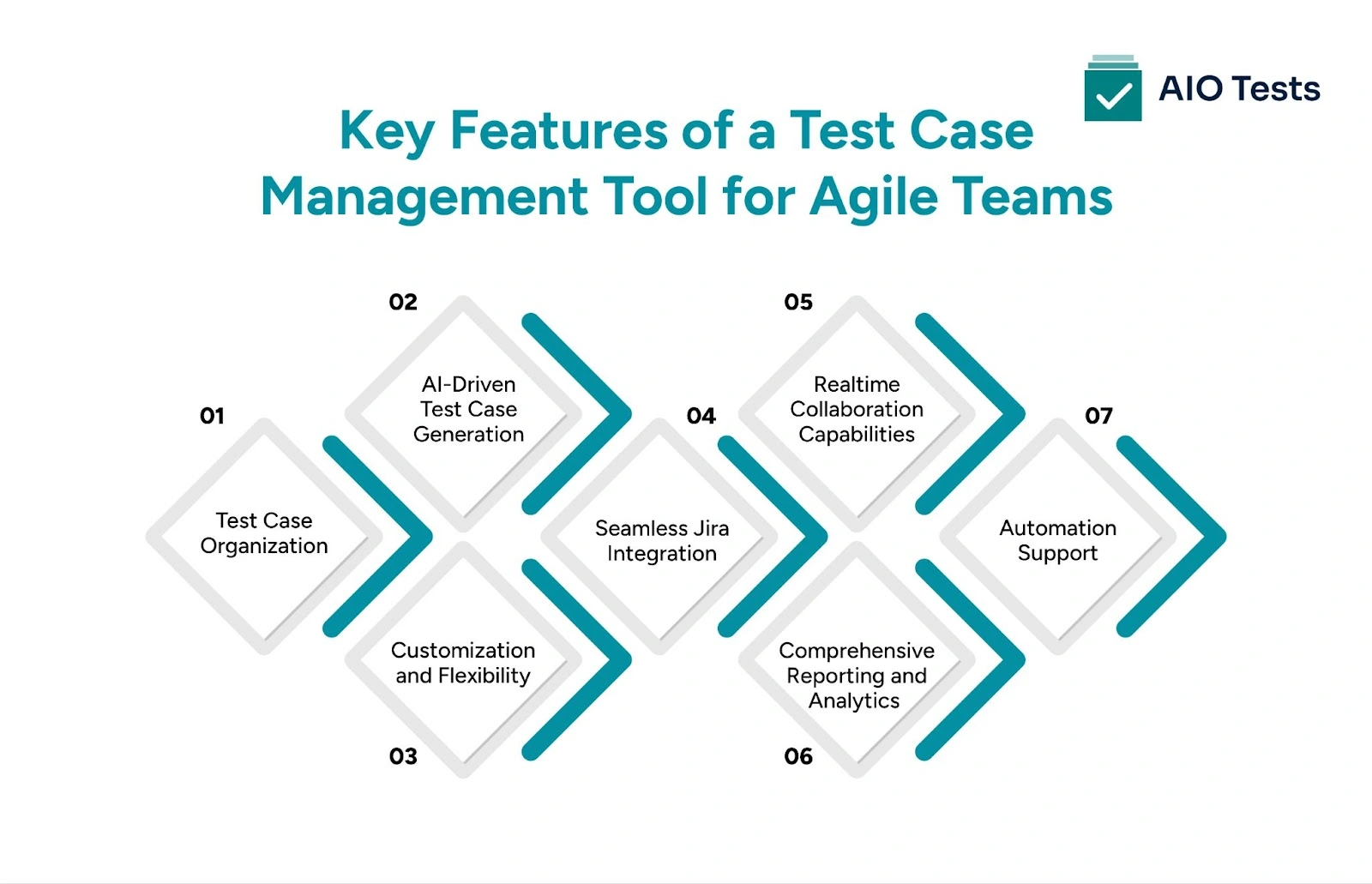
Effective test planning is the foundation of successful software development, ensuring that applications meet the highest quality standards and function as intended. A well-structured test plan serves as a strategic guide, outlining the key components included in test planning in software testing.
This approach not only aids in the early detection of defects but also aligns testing activities with project goals, leading to improved resource utilization and timely delivery. In addition to a robust test plan, choosing the right test case management tool is essential for agile teams.
In this article, we will delve into the essential components of test planning and explore the key features to look for in a test case management tool for Agile teams, highlighting how these tools can streamline testing processes and enhance collaboration.
A test plan is an important element of software testing to assure the quality and reliability of the software products. The test plan mainly includes the scope of the project, objectives, strategy, resources, and scheduling of all the testing activities.
The test plan is like a complete blueprint that guides the entire testing process. It confirms that all points of the software product are properly examined before the deployment. This documented plan helps all testers understand the steps included in the first, how the entire testing is done, and the criteria for success.
Here are the key components included in test planning in software testing are:

Effective test case management begins with a powerful creation and organization framework. In Agile environments, test cases must be more than static documents—they need to be living, breathing entities that can quickly adapt to changing requirements and sprint dynamics.
A sophisticated tool for test planning in software testing provides intuitive interfaces for creating detailed test cases that capture steps, expected results, and the underlying business logic and user scenarios. Hierarchical organization becomes crucial, allowing teams to:
The goal is to transform test case management from a mundane documentation exercise into a strategic quality assurance process that provides real insights and drives continuous improvement.
Artificial Intelligence is revolutionizing test case development by introducing smart, predictive capabilities. An advanced test case management tool that supports test planning in software testing can:
This AI-driven approach doesn't replace human testers but augments their capabilities, allowing them to focus on complex testing scenarios and exploratory testing that require human creativity and intuition.
No two agile teams are identical, and a one-size-fits-all approach to test management is counterproductive. Modern tools that support comprehensive test planning in software testing must offer extensive customization options:
The key is creating a tool that adapts to the team's workflow, not forcing the team to adapt to the tool's rigid structure.
In Agile environments, testing is not a separate phase but an integrated, continuous process. A comprehensive test case management tool must provide Jira integration capabilities to maximize efficiency and transparency. These integrations eliminate manual work, reduce communication overhead, and ensure that testing is synchronized within the Agile workflow.
These integrations eliminate manual handoffs, reduce communication overhead, and ensure that testing is a synchronized, transparent process.
Distributed teams and remote work environments demand collaborative testing tools that transcend physical boundaries. Advanced features should include:
By fostering a collaborative environment, these tools break down silos between developers, testers, and product managers.
Data-driven decision-making is the cornerstone of Agile methodologies. Powerful reporting and analytics transform raw testing data into actionable insights:
These analytics help teams identify improvement areas, validate testing strategies, and demonstrate the tangible value of quality assurance efforts.
Automation is no longer a luxury but a necessity in modern software development. A robust Test Case Management Tool should provide comprehensive automation support:
By streamlining automation processes, teams can dramatically reduce testing cycle times and improve overall software quality.
In summary, there are innumerable test case management tools for agile teams in the market designed to simplify your testing process and make your tasks easier.
For those looking to take full advantage of a feature-rich tool that will empower your team to churn out high-quality software products in record time, AIO Test could be just what you need. AIO Tests is a comprehensive QA and test case management platform for Jira, designed to streamline every stage of the testing process with AI-driven features that enable teams to automate and optimize testing.
AIO Test is designed to help teams easily integrate AI into their workflows, which speeds up software testing and increases effectiveness. If you want to find out more, feel free to contact us at help@aiotests.com or schedule a demo today.